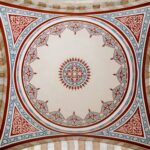Whenever the seasonal event of elections draws near, voices raise time again to consider with suspicion the Islamic mainstream movement’s intention and attitude towards democratic process. Critics of Islamists picture the mainstream movement as one uniform bloc, having the same vision and adopting the same stand with respect to a plethora of issues, in particular on issues of politics and social change. In this article I shall tackle some Islamists’ theoretical and practical stands on democratic process, and here are three kinds of attitudes.
Reject it altogether
Some Islamists view democracy and democratic process as a heretical belief and practice. They contend that no evidence is given to prove that democracy has Islamic roots in the Quran and the Prophet’s tradition and that it is the by-product of unbelievers, so we have to reject it altogether. They abhor anything related to multi-party system, opposition, legislation and deem these ideas and practices as a violation to Islam’s precept which call for unity, obedience to the ruler in all circumstances and subscription to the Sharia law. This naïve and superficial understanding of the ultimate goals of Islam has generated a big loss to the Umma and has yielded some anomalous and sometimes violent practices by extremist groups. Furthermore, this trend is unaware of world dynamics and have no idea about statehood and building power and ways to restore the Umma’s dignity save a blurry and idealistic vision of Islamic nation akin to that in our glorious times.
Adopt it altogether
Anti-Islamist proponents would weigh in and cast so much doubt on the Islamists’ intention when they pronounce their commitment to the democratic process and express their willingness to engage in elections and accept the subsequent results to share the burden of managing public affairs. The opponents know for sure that Islamists have a strong and reliable moral asset that allow them to win any election they run for, that is why they campaign against their initial participation in democratic game and try to impose unfair conditions for this participation such as requiring from the Islamists to adopt democracy as an ideology and procedures altogether. In other words, Islamists have to distance themselves from their Islamic beliefs and their strategic vision of the state and embrace secularism or laicism altogether. In addition to that some crippling measures are tailored so that the Islamists can never win a majority. Some Islamists in fact have yielded to these prescriptions as a tactical approach to wield power and to fill the vacuum, but they have failed in their attempt and lost much of their moral popular asset. Instead of containing their opponents they have ended by themselves being contained.
Assess and adapt
Other Islamists, though a few, see the whole democratic process from a different perspective. They consider democracy today as the most viable and reliable existing model of governance humanity has produced so far. And they list the many blessings of democracy such as choosing and dismissing your ruler in free elections, the right to free expression of opinion, the right to criticize and oppose policies, the rule of law, the independence of judiciary, among other positive things. But they unequivocally reject the ideological aspect of democracy which calls for alienating faith from public affairs and they hold that democracy and democratic ideals are the product of humans and that they are not sacred injunctions, so they are subject to modification and improvement to serve the interest of the public. This trend of Islamists think they should first assess the credibility of the democratic process before any engagement. If the procedures are tailored to cripple any participant from winning the elections, this of course undermines the very foundation of fair democratic practice. And if the whole process yields institutions with no genuine prerogatives and seen as a façade of a travesty of democracy, set only to maintain the status quo of power monopoly, it would be better not to engage in and keep pressing from outside for a real democratic practice.
To conclude this, we should note that we have several examples of democracy failures in governance, particularly in Arab world. When we raise the question whether the Islamists believe in democracy, all instances of the events of the Arab Spring demonstrate that when Islamists commit to democratic process and win the elections, the so-called democratic parties are the first to reject the results and call for the army to interfere to block the democratic process altogether.
Who, then has to be questioned about one’s belief in democratic process?







